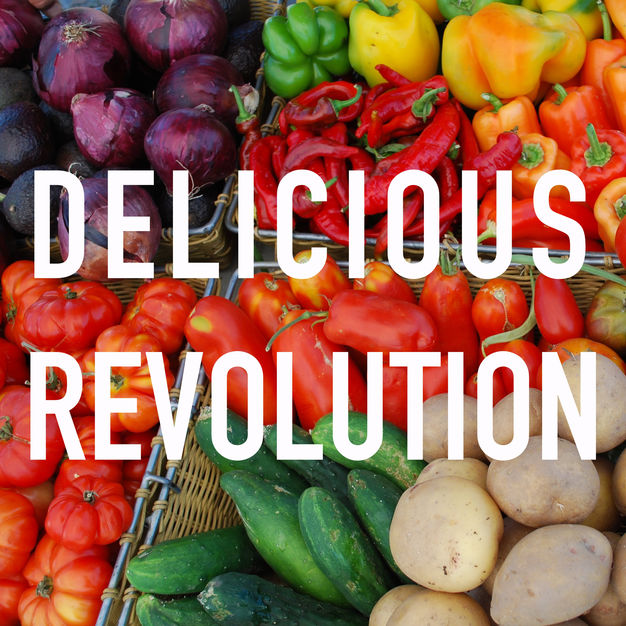
Delicious Revolution
Chelsea Wills and Devon Sampson
Delicious Revolution is a show about food, culture, and place. We talk with people whose expertise in food comes from working with food as farmers, fishers, artists, cooks, activists, scholars, journalists, and more. They spend a large portion of their life thinking about food- what it means, how to make it, how to change the food system, how it ties together societies. We will bring you in-depth conversations with some of the brilliant people that inspire the ways we think about food. Find us online at deliciousrevolutionshow.com Chelsea Wills and Devon Sampson produce Delicious Revolution.
- 46 minutes 31 seconds54 Niaz Dorry on organizing for land food and sea food, and organizing at the speed of trustNiaz Dorry moved to Glauster, Massachusetts, the oldest settled fishing port in the United States, in 1994, and she has been working with small-scale, traditional, and indigenous fishing communities in the U.S. and around the globe ever since. After a working as an environmental justice organizer in Greanpeace’s toxics campaigns, she started working on fisheries issues. She’s been organizing with the fishing families of the North Atlantic Marie Alliance since 2008, advancing the rights and ecological benefits of the small-scale fishing communities as a means of protecting global marine biodiversity. This year, NAMS and the National Family Farm Coalition decided to join forces and share leadership, with Niaz as their director. She is currently on a national tour of farms and fishing communities to kick of this joint effort. I spoke with Niaz just before she left on tour. Here’s my conversation with Niaz Dorry.
Hosted on Acast. See acast.com/privacy for more information.
25 June 2018, 12:00 am - 48 minutes 41 seconds53 Janaki Jagannath on an ecological approach to environmental justice in the San Joaquin ValleyJanaki Jagannath is the former Coordinator at the Community Alliance for Agroecology, a coalition of community-based organizations in the San Joaquin Valley of California that work to advance agricultural and environmental policy towards justice for communities bearing the burden of California’s food system. Prior to this, she worked at California Rural Legal Assistance in Fresno, enforcing labor standards and environmental justice protections such as access to clean drinking water for farmworker communities. Janaki has assisted in curriculum development for the Sustainable Agriculture and Food Systems degree at UC Davis and has farmed diversified and orchard crops across the state, including conducting training at the Refugee Entrepreneurial Agriculture Project in San Diego County. Janaki holds a B.S. in Agricultural Development from UC Davis and a producers’ certification in Ecological Horticulture from UC Santa Cruz Center for Agroecology. She is currently pursuing her J.D. at King Hall. In this episode, Janaki talks to Devon about organizing in the San Joaquin Valley, building movements in the legacy of the United Farm Workers, and an ecological approach to environmental justice.
Hosted on Acast. See acast.com/privacy for more information.
13 May 2018, 12:00 am - 42 minutes 50 seconds52 M. Jahi Chappell on Beginning to End HungerM. Jahi Chappell is a political agroecologist with training in ecology and evolutionary biology, science and technology studies, and chemical engineering. He is a Senior Research Fellow at the Centre for Agroecology, Water and Resilience (CAWR) at Coventry University, and a Fellow of Food First.Jahi has recently published a book called Beginning to End Hunger: Food and the Environment in Belo Horizonte, Brazil and Beyond. It is rooted in his field research in Belo Horizonte over more than a decade, and presents a far-reaching analysis of how to end hunger, what is keeping us as a society from doing it, and how we might overcome the many obstacles in our way. Devon spoke to Jahi in the cafeteria of the United Nations Food and Agriculture Organization in Rome, during a vibrant symposium on agroecology. We talk about the experience of Belo Horizonte’s massive investment in food security, the expansion of those ideas to Brazil’s Fome Zero (Zero Hunger) programs, and the need to build trust between groups and find common agendas so that we as a movement are ready when political windows open for radical change. Photo courtesy of Cecilia Rocha.
Hosted on Acast. See acast.com/privacy for more information.
10 April 2018, 12:00 am - 27 minutes#51 Elizabeth Mpofu of La Via Campesina on peasant leadership and a call to fight togetherElizabeth Mpofu is a the General Coordinator of La Via Campesina, a global coalition of more than 164 farmer organizations from 73 countries. She is also a small-scale farmer in Zimbabwe, the leader of the Zimbabwe Smallholder Farmers’ Forum, and an advisor to the United Nations Food and Agriculture Organization. In this episode, she describes her unexpected path to leadership in the food sovereignty movement, the fight to be respected as peasants around the world, and the struggle for representation of the people most effected by development decisions. We spoke at the Thousand Currents offices in Berkeley last year.Photo: DFID (CC BY 2.0)
Hosted on Acast. See acast.com/privacy for more information.
9 March 2018, 7:08 pm - 4 minutes 35 secondsAnnouncing Season 6: The Movement BuildersWe're excited to announce season 6 of Delicious Revolution! Just about every one of the fifty episodes we’ve done so far touches on movement. Listening back to these recordings, I feel like I’m listening in on many lifetimes of experience building movements. I think it’s time to take on movement building head-on for a season. We’ll bring you interviews with organizers and activists, and get deep into what it means to build a movement. Photo: Sana Javeri Kadri (She's Delicious Revolution interview number 50!)
Hosted on Acast. See acast.com/privacy for more information.
25 January 2018, 11:24 pm - 53 minutes 21 seconds#50 Sana Javeri Kadri on decolonization as a series of questions#50 Sana Javeri Kadri on decolonization as a series of questions by Chelsea Wills and Devon Sampson
Hosted on Acast. See acast.com/privacy for more information.
7 November 2017, 12:00 am - 55 minutes 37 seconds#49 Karla Diaz on cooking in prison and the migration of food traditions in and out of incarcerationSana Javeri Kadri is a sometimes salty, permanently hungry, rather creative human. She was raised in post-colonial Bombay, wound up in the produce aisles of California and can be currently found @sanajaverikadri on Instagram or in person wherever there are vegetables to be found. She is also schemer-in-chief for Diaspora Co-Op. In this episode, Sana talks with Chelsea about living between Mumbai and the Bay Area, the role of aesthetics in telling difficult stories, and decolonization as a series of questions.
Hosted on Acast. See acast.com/privacy for more information.
24 October 2017, 12:00 am - 43 minutes 10 seconds#48 Ayhan Aydin on drawing on the richness of immigrant food traditionsAyhan Aydin is a meal ecologist. His interdisciplinary practice consists of projects that consider art, science and food. He is interested in creating stories through meals and challenging the idea of what a meal is. As a cook, he likes to take ordinary food items and creates something unexpected but still familiar. He is one of the founders of Nordisk Matutveckling AB (Nordic Food Development), a company that creates new food products from Nordic ingredients, applying various culinary traditions to existing foods in order to utilize and repurpose them. His artistic work includes collaborations with OPENrestuarnt, a theater play called “Restaurang Allemansrätten” (the Restaurant Right of Commons) featuring a meal as a central part of the story, and several conceptual dinners. In this episode, Ayhan talks with Devon about making tempeh from Swedish fava beans, what it means to create something new from very old food traditions, and drawing on the richness of immigrant food traditions.
Hosted on Acast. See acast.com/privacy for more information.
10 October 2017, 12:00 am - 55 minutes 13 secondsSeverine von Tscharner Fleming on building a commons for the future of farmingSeverine von Tscharner Fleming is a part-time farmer, activist, and organizer based in the Champlain Valley of New York. She is director of Greenhorns, a grassroots organization with the mission to recruit, promote and support the rising generation of new farmers in America. Severine has spent the last seven years gathering, bundling and broadcasting the voices and vision of young agrarians. Greenhorns runs a weekly radio show on Heritage Radio Network and a popular blog. They produce many kinds of media, from documentary films to almanacs, anthologies, mix-tapes, posters, guidebooks and digital maps. They are best known the documentary film, “The Greenhorns” and the raucous young farmer mixers they've thrown in 37 states and 14 grange halls. Severine is co-founder and board secretary of Farm Hack, an online, open-source platform for appropriate and affordable farm tools and technologies , as well as National Young Farmers Coalition which now boasts 23 state and regional coalitions. She serves on the board of the Schumacher Center for New Economics, which hosts Agrarian Trust, her latest startup, focused on land access for beginning farmers, and permanent protection of affordable organic farmland. Severine attended Pomona College and University of California at Berkeley, where she graduated with a B.S. in Conservation/ Agroecology. In this episode, Severine talks with Devon about young farmers, emerging models for food and land sovereignty, and building a commons for the future of farming.
Hosted on Acast. See acast.com/privacy for more information.
26 September 2017, 12:00 am - 46 minutes 9 seconds#46 Kitazawa Seeds - Maya Shiroyama and Jim Ryugo on 100 years of selling Asian vegetable seedsMaya Shiroyama and Jim Ryugo run Kitazawa Seeds, a 100-year-old seed distributor based in California that specializes in Asian vegetables. The company was started by Gijiu Kitazawa in 1917, serving mostly Japanese-American gardeners on the West Coast. It closed for four years when the United States government sent Kitazawa and most of his customers to concentration camps during World War Two, and re-opened in 1945 shortly after their release. Maya and Jim had planted the company’s seeds in their home garden for years when a missing seed order led to them buying the company from Kitazawa’s granddaughter in 2000. In this episode, Maya and Jim talk with Devon about the 100-year history of the seed company, the global network of growers that supply their unique inventory of seeds, and the new and old varieties dear to asian-americas gardeners and farmers around the country.
Hosted on Acast. See acast.com/privacy for more information.
12 September 2017, 12:00 am - 39 minutes 4 seconds#45 Sandor Katz on the relevance of food traditions, and migrating from the city to the country#45 Sandor Katz on the relevance of food traditions, and migrating from the city to the country by Chelsea Wills and Devon Sampson
Hosted on Acast. See acast.com/privacy for more information.
29 August 2017, 12:00 am - More Episodes? Get the App
Your feedback is valuable to us. Should you encounter any bugs, glitches, lack of functionality or other problems, please email us on [email protected] or join Moon.FM Telegram Group where you can talk directly to the dev team who are happy to answer any queries.
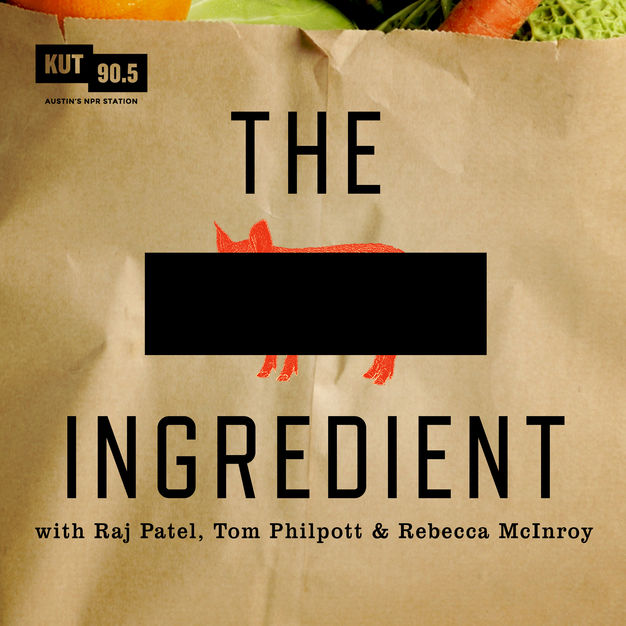 KUT » The Secret Ingredient
KUT » The Secret Ingredient
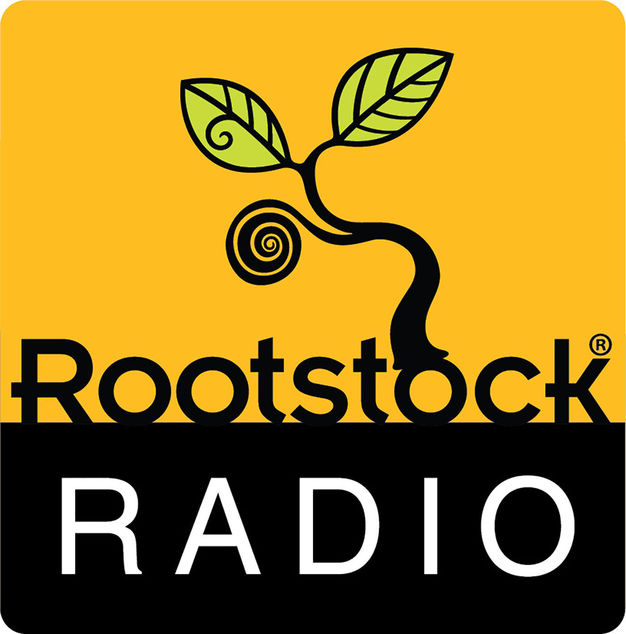 Rootstock Radio
Rootstock Radio
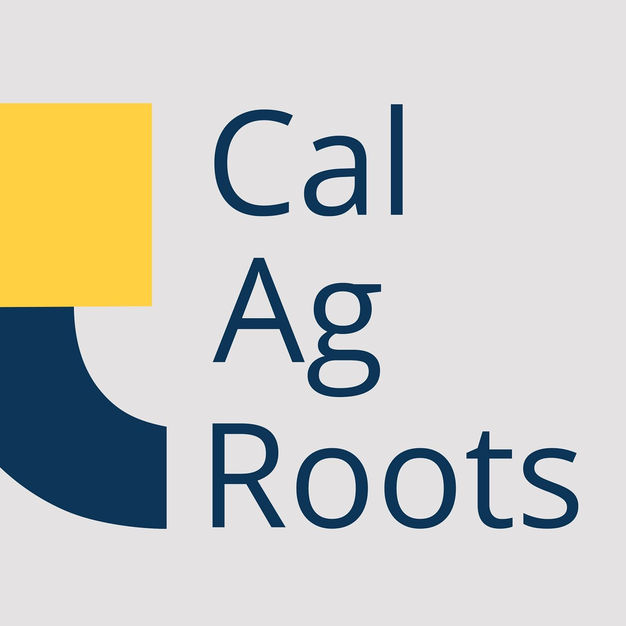 Cal Ag Roots Podcast
Cal Ag Roots Podcast
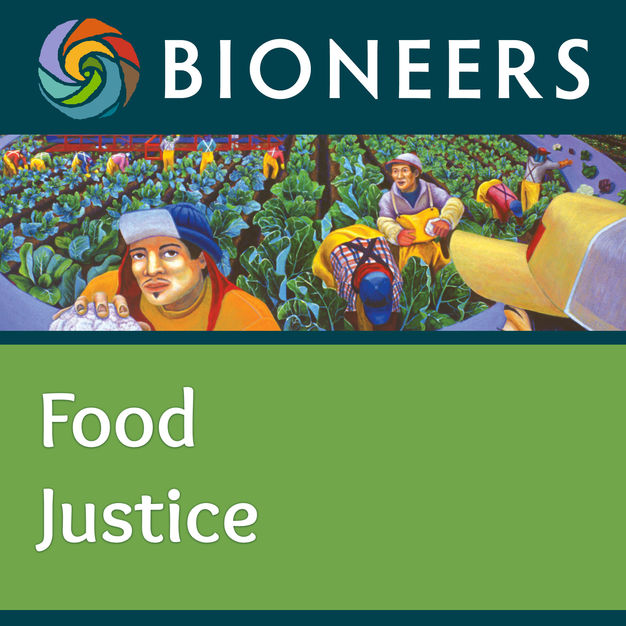 Bioneers: Food Justice
Bioneers: Food Justice
 Real Food Reads
Real Food Reads
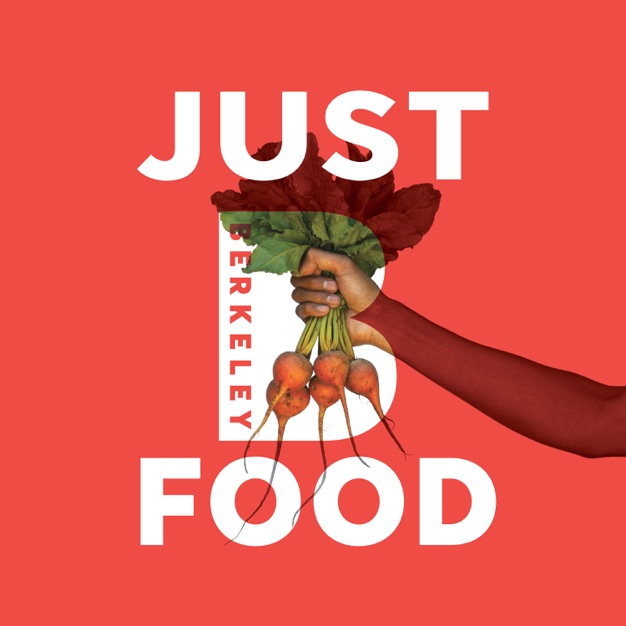 Just Food
Just Food